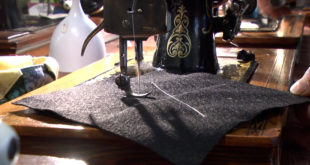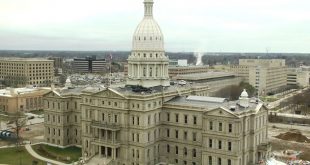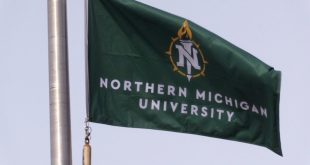 The purchase of the Douglass Houghton Waterfalls can now move forward after Governor Rick Snyder approved the funding for the project.
The purchase of the Douglass Houghton Waterfalls can now move forward after Governor Rick Snyder approved the funding for the project.
The Michigan Department of Natural Resources—Parks and Recreation Division will use $600,000 in funds to acquire the 80 acre site in Houghton County.
The purchase will allow the state to preserve and provide public access to the Hammell Creek gorge and Douglass Houghton Falls, considered to be among the tallest waterfalls in Michigan.
The property will also serve as a trailhead for the Hancock to Laurium Rail Trail.
The DNR plans to partner with the Houghton-Keweenaw County Recreation Authority and Calumet Township to develop and maintain the property as a scenic site.
Snyder signed off on a total of $28 million in Michigan Natural Resources Trust Fund grants for projects throughout the state.
Additional Note: Is it the Houghton Douglass Falls or the Douglass Houghton Falls? The argument may continue, but here is the basis for Keweenaw Report going with the latter:
http://www.geo.mtu.edu/~raman/SilverI/The_Fault/D_Houghton_Falls.html
http://www.wuppdr.com/pdf/FinalRecPlanHo12.pdf
Here is the full press release from the Governor’s Office:
LANSING, Mich. – More opportunities for quality outdoor recreation will be available from $28 million in Michigan Natural Resources Trust Fund grants under legislation signed today by Gov. Rick Snyder.
“No matter where you are in Michigan, you’re never far from a Michigan Natural Resources Trust Fund-supported project,” said Gov. Snyder. “These important grants create better, broader access to public recreation opportunities for individuals and families in every county statewide.”
House Bill 5377, sponsored by state Rep. Jon Bumstead and co-sponsored by state Rep. Al Pscholka, approves funding for 70 recreation projects and land purchases recommended by the board last December. It is now Public Act 61 of 2016.
The Trust Fund board recommends funding to both state and local agencies for development projects and land acquisitions that will further access to public outdoor recreation. This round of grant funding includes support for expanding public access and athletic field enhancement at local parks; making land and water trail connections along existing trail corridors; furthering significant natural resource protection projects, and expanding waterfront and public boating access opportunities.
This year the board recommended $19.9 million for acquisition grants and $8 million for development grants.
Twenty-one acquisition grants were awarded to local units of government for a total of $15.2 million, while five acquisition grants went to the Department of Natural Resources for projects totaling $4.7 million. The Trust Fund board also recommended $6.5 million in development grants be awarded to 39 local units of government while five DNR projects garnered a total of $1.5 million.
“When a Michigan Natural Resources Trust Fund grant is awarded to a local unit of government, that funding brings economic, recreational and quality-of-life benefits to the surrounding community,” said DNR Director Bill Moritz. “Projects like these often have a real impact on local businesses, too.”
The Michigan Natural Resources Trust Fund is a restricted fund that was established in 1976 to provide funding for public acquisition of lands for resource protection and outdoor recreation, as well as for public outdoor recreation development projects. It is funded through interest earned on funds derived from the development of publicly owned minerals and can only be used for public outdoor recreation. Over the past 40 years, the Trust Fund has granted more than $1 billion to state and local units of government to develop and improve recreation opportunities in Michigan.
The Trust Fund board’s recommendations went to the Michigan Legislature for review earlier this year as part of the appropriation process. Once approved by the Legislature, the bill is sent to the governor for his approval and signature.
Descriptions of the development projects and acquisition projects approved by Gov. Snyder are available at www.michigan.gov/mnrtf. For more information on the DNY, visit www.michigan.gov/dnr.
 Keweenaw Report Your Source for Local News and Sports
Keweenaw Report Your Source for Local News and Sports





